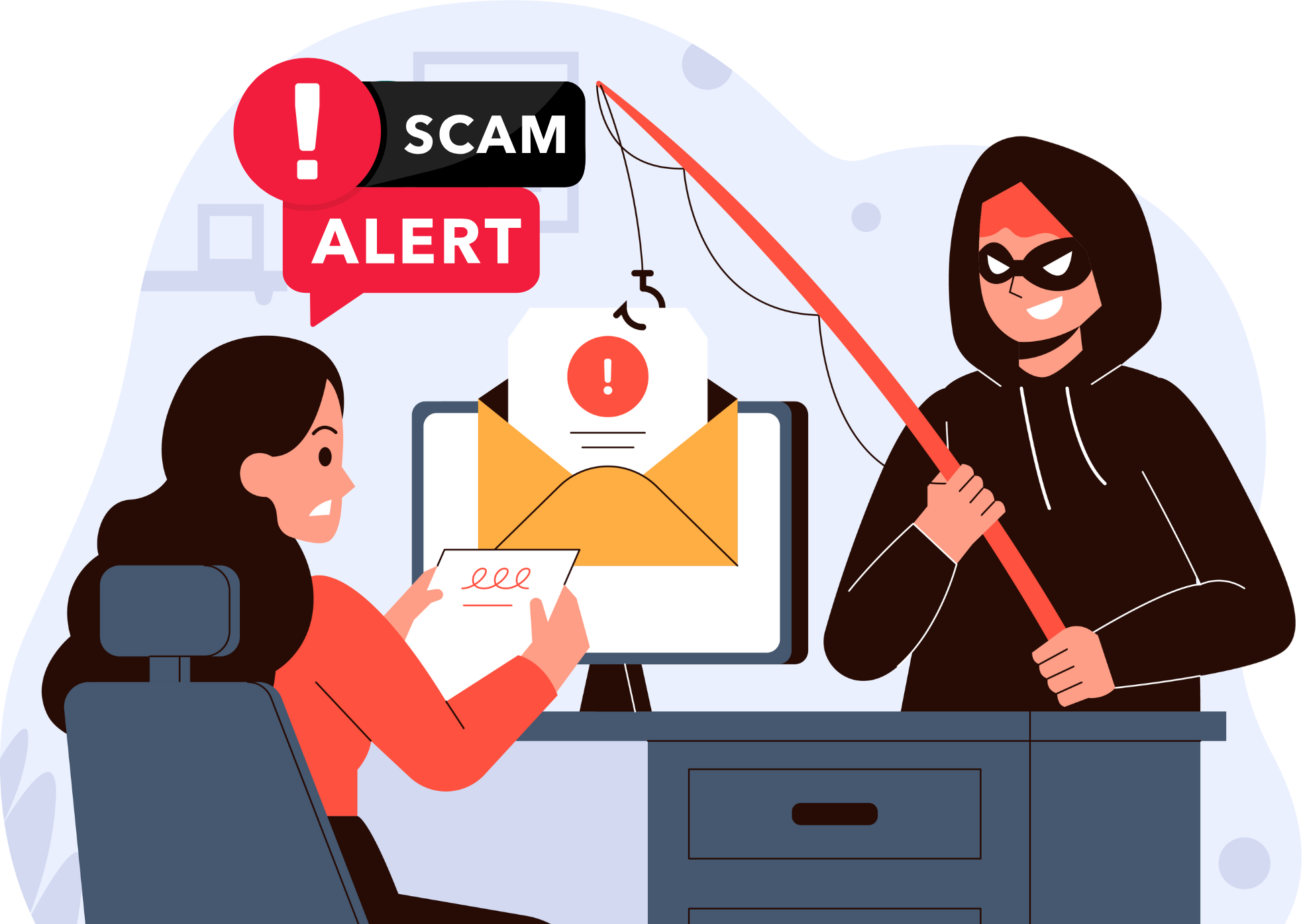The biggest scams of 2024 – and how to avoid more in 2025
There’s no doubt that scammers are becoming more sophisticated and better at avoiding suspicion as each year passes and 2024 was no exception.
The Cyber Resilience Centre for the South has compiled a list of last year’s biggest frauds, together with some tips for guarding against them.
Online shopping scams
Online shopping is more popular than ever, and unfortunately, scammers know it. They’re creating fake websites, counterfeit product listings, and even fraudulent social media ads to trick shoppers. These scams often tempt people with incredible deals on popular products—deals that are, sadly, too good to be true.
Here’s how to shop safely:
Stick to trusted retailers or verified sellers.
Be cautious of offers that seem unrealistically cheap.
Check for “https” in the website’s URL and read customer reviews.
Use secure payment methods, like credit cards or trusted platforms, for extra protection.
Delivery scams
Fake delivery notifications are everywhere these days. Scammers send emails or texts claiming there’s an issue with a package, urging you to click on a link to “fix” it. These links often lead to malicious websites designed to steal your personal or financial details.
Protect yourself by following these tips:
Be wary of unexpected delivery messages, even if they look like they’re from trusted companies.
Avoid clicking links in unsolicited messages—go to the courier’s official website instead.
Watch for red flags like spelling mistakes, strange email addresses, or urgent language.
Investment scams
Investment scams have skyrocketed in 2024. Scammers are promising huge returns on fake opportunities involving cryptocurrencies, stocks, or property. They often create convincing websites and fake reviews to look legitimate, pressuring people to invest quickly.
Keep your money safe by:
Doing thorough research and seeking advice from a registered financial advisor.
Being cautious of anyone promising “guaranteed” high returns—if it sounds too good to be true, it probably is.
Verifying that financial firms are regulated by the Financial Conduct Authority (FCA) in the UK.
Phishing emails and texts
Phishing remains a favourite tool for cybercriminals. In 2024, these scams have become even more believable, with emails and texts that look like they’re from banks, delivery companies, or even government agencies.
Here’s how to stay safe:
Double-check the sender’s email address or phone number. Legitimate organisations won’t ask for sensitive details this way.
Avoid clicking on links in unexpected messages—visit the company’s official website directly.
Enable spam filters and report suspicious messages to Action Fraud or your email provider.
Cost-of-living and energy bill scams
Scammers are preying on the ongoing cost-of-living crisis, sending fake messages offering refunds, discounts, or government support for energy bills. These often lead to phishing websites that steal your personal and financial details.
Protect yourself by:
Being cautious of unsolicited messages about refunds or financial help.
Confirming offers directly with the organisation or government body mentioned.
Never sharing personal details unless you’re 100 per cent sure the request is legitimate.
WhatsApp and social media scams
Messaging apps and social media platforms are a playground for scammers. A common trick is the “Hi Mum, I’ve lost my phone” scam, where fraudsters impersonate loved ones asking for urgent financial help.
Stay one step ahead by:
Verifying messages from unfamiliar numbers, even if they claim to be from someone you know.
Avoiding sharing personal or financial information through messaging apps.
Reporting and blocking suspicious accounts on social media.
What to do if you’ve been scammed
If you’ve fallen victim to a scam, don’t panic—take these steps:
Report it immediately to your bank if you’ve shared financial details or lost money.
Contact Action Fraud, the UK’s national fraud reporting centre.
Change your passwords if you think your accounts have been compromised.
By staying alert and taking preventative steps, you can enjoy a safer, scam-free year in 2025.

